Why Is “Orgo” a Nickname for Organic Chemistry?
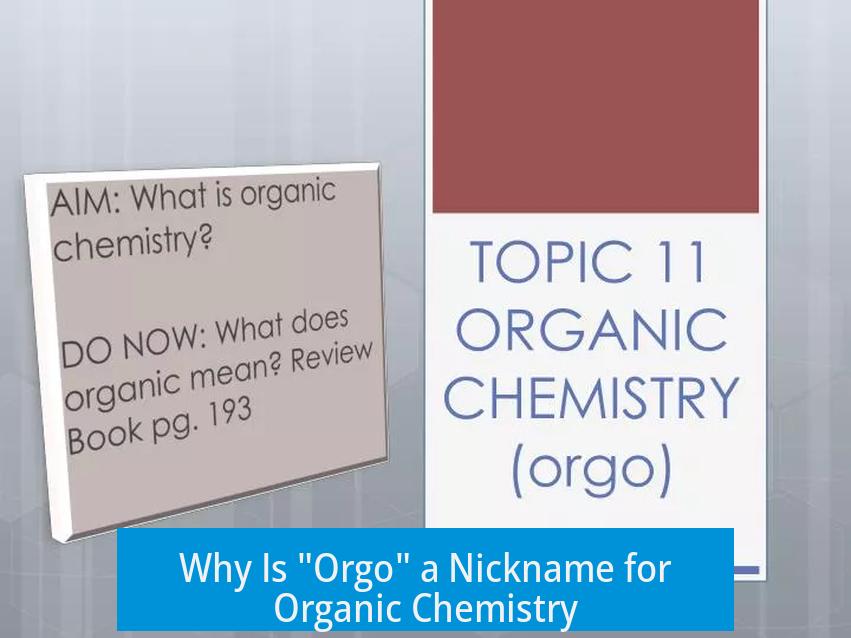
“Orgo” is a shortened, informal nickname derived from the phrase “organic chemistry.” It emerges from a linguistic shortening of the word “organic,” evolving from “organic” to “orgo,” mostly used by students in scientific and pre-medical fields as a practical and culturally significant shorthand.
Origin and Evolution of the Nickname “Orgo”
The term “orgo” originates from the progressive abbreviation of the word “organic.” The process follows this sequence: organic → orga → orgo. Students condensed the term to facilitate quicker communication. Specifically, it stems from “organic chemistry,” a foundational course in many science programs.
Its use is significantly prevalent among pre-medical, biology, and chemistry students, who often face “organic chemistry” as a prerequisite. This slang gained popularity on university campuses, reflecting broader student culture, and is part of informal academic jargon.
Usage and Context of “Orgo”
Within academic communities, the nickname is typical and conventional. Chemistry majors often refer to organic chemistry as “orgo” or “O-chem.” Such terms simplify communication, especially in study groups, social media discussions, and lab settings.
- Other chemistry course nicknames include “P-chem” for physical chemistry and “Quant” or “A-chem” for analytical chemistry.
- Common phrases found online include: “Need to study for orgo finals,” or “Joining an orgo lab this week.”
These abbreviations streamline interaction among peers confronting rigorous coursework and foster group identity.
Regional and Cultural Variations in Naming

The nickname “orgo” is not universal. Different regions and cultures use various terms for the same subject:
- In New York, “orgo” is common.
- In California, “o-chem” is more frequently heard.
- In Germany, students use “OC” for organic chemistry.
Some students humorously associate “orgo” with social events unrelated to chemistry, reflecting students’ lighthearted coping with the subject’s demands.
Language, Naming, and Social Usage
Nicknames like “orgo” represent natural linguistic phenomena developed through common use. Languages often create informal versions of formal terms for convenience and social bonding.
Some students dislike the nickname, finding it unappealing or trivializing a difficult subject. Others see it as a neutral descriptor. The nickname’s persistence indicates broad acceptance among academic circles.
Practical Reasons for Using “Orgo”
Several practical factors contribute to the nickname’s use:
- Time Efficiency: “Orgo” saves time during conversations and writing.
- Sound and Uniqueness: The term sounds memorable and fits informal student culture.
- Humor and Coping: It introduces a lighthearted approach to a tough topic.
- Camaraderie: Students using “orgo” bond over shared academic challenges.
These elements illustrate how “orgo” serves as a social and linguistic tool, reflecting students’ adaptation to demanding coursework.
Difficulty and Connotations Related to “Orgo”
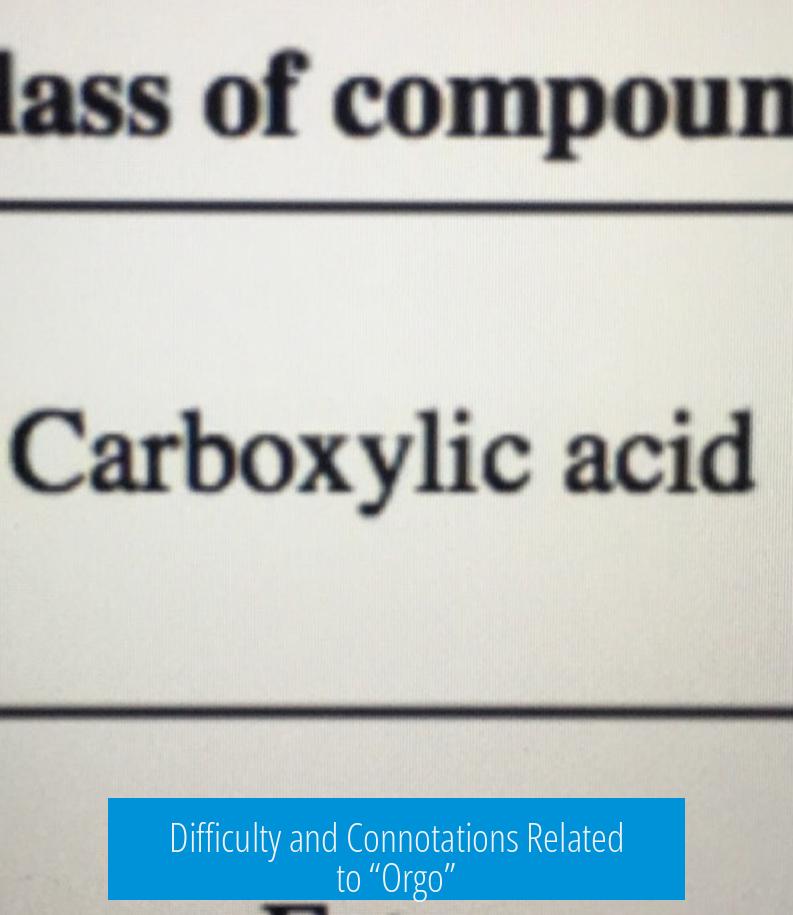
Organic chemistry has a notorious reputation for difficulty in undergraduate studies. Nearly 55% of college students describe “orgo” as the hardest course they have taken. Moreover, approximately 40% do not succeed on the first attempt and must retake it.
Students often spend 15 to 20 hours weekly preparing for exams and labs. The nickname “orgo” symbolizes this struggle, sometimes interpreted as “or go” — suggesting that students should either master the course or risk failure. This underscores organic chemistry’s challenging nature in the academic ecosystem.
Cultural Significance and Academic Support
“Orgo” is more than an abbreviation; it embodies student culture and shared experiences in academia. Universities recognize this culture by incorporating the term in support programs.
| University | Support Program | Details |
|---|---|---|
| University of California, Berkeley | Peer Tutoring | Pairs students with successful upperclassmen for organic chemistry guidance. |
| University of Michigan | Online Study Sessions | Focuses on organic chemistry through digital platforms like Zoom. |
| Penn State University | Resource Library | Offers extensive video lectures and written study materials for “orgo” students. |
Such initiatives incorporate “orgo” into educational communication, fostering student engagement.
Key Takeaways
- “Orgo” is a nickname formed by shortening “organic” from “organic chemistry.”
- It is widely used among science and pre-med students as a practical, informal shorthand.
- Variations of the term exist depending on region and culture.
- “Orgo” reflects students’ social culture, coping mechanisms, and shared experiences with a difficult course.
- Universities embrace the term within academic support and tutoring programs.
Why is “orgo” a Nickname for Organic Chemistry?
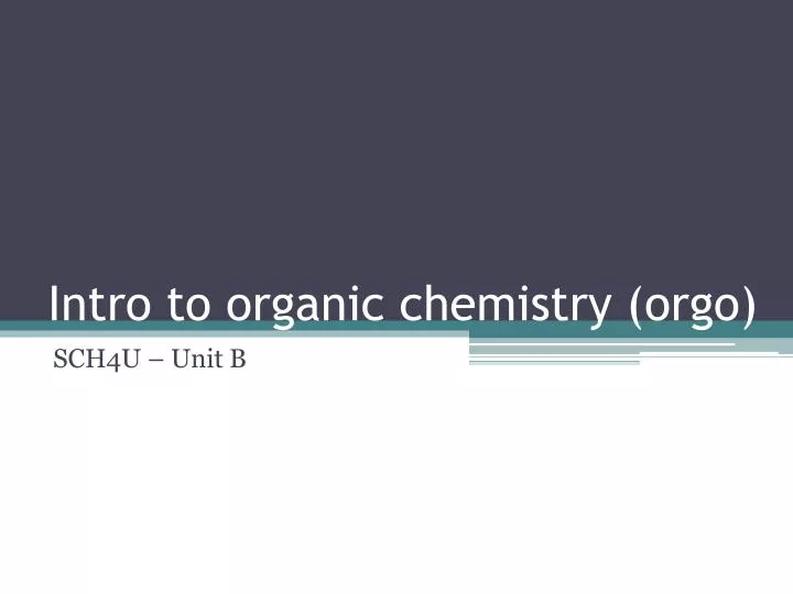
“Orgo” is a playful, convenient shorthand for organic chemistry, borne out of students’ need to simplify a daunting subject’s lengthy name and foster a sense of community amid its notorious difficulty. This nickname isn’t just slang; it’s a linguistic and cultural phenomenon that has evolved naturally among science students across campuses worldwide.
Let’s unravel how a serious academic subject earned such a casual identity and what that means for students who live and breathe those complex carbon rings.
How Did “Orgo” Come About?
First, the nickname “orgo” springs from an obvious source—the word “organic.” If you say it slowly inside your head: ORGAnic, you’ll notice the natural truncation to ORGA. Slip into casual speech, and that “a” morphs into an “o,” smoothening pronunciation to “orgo.”
This linguistic shortcut fits nicely with how students love to abbreviate their workload: from “quantitative analysis” to “Quant,” and “physical chemistry” to “P-Chem.” So organic chemistry became “orgo,” just another step in campus lexicon evolution.
Academic communities worldwide adopted it quickly because, well, saying “organic chemistry” all the time takes more breath than a lab experiment usually allows!
Is It Just Students Who Use It?
Mostly, yes. Pre-med, biology majors, and chemistry students toss “orgo” into conversations like lab coats. It’s common in universities, especially in the U.S., and appears frequently on study forums.
One user shared, “I was a chemistry major, and everything was ‘orgo’ on campus.” Another chimed in, “We always called it ‘O-Chem,’ too,” showing the nicknames’ variations. Both nicknames denote the same beast but hint at regional flavors.
Does “Orgo” Mean the Same Everywhere?
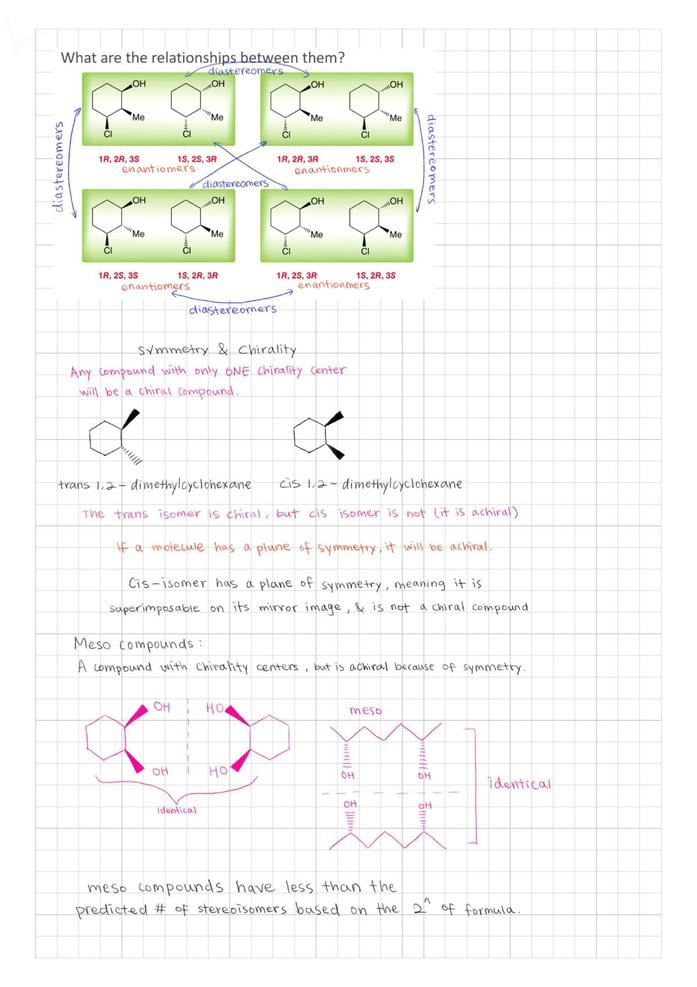
Not quite. If you took undergrad studies in New York, you probably heard “orgo” more than “O-Chem.” Move west to California, and “O-Chem” might dominate discussions. Cross the Atlantic to Germany, and “OC” is the choice.
Interestingly, some students joked “orgo” might sound like “orgies,” sparking amused banter about unfortunate lab partner invites. This shows how culture colors nicknames, adding a layer of humor among students under pressure.
Why Do Students Embrace Nicknames Like “Orgo”?
Imagine juggling multiple challenging courses, lab reports, and trying not to confuse stereochemistry with Greek letters during finals. You want to be efficient.
“Orgo” condenses that stress into a manageable chunk. It fosters camaraderie. Saying “I have an orgo exam” bonds students who understand the struggle.
Some say calling organic chemistry “orgo” adds an element of coolness: it’s shorter, punchier, and sounds less intimidating than the full name. The abbreviation lets students cope with pressure through humor and practicality.
What Makes Organic Chemistry So Tough?
Organic chemistry has a legendary reputation for complexity. Why is it so hard?
Statistics show about 55% of students call it the hardest course they’ve taken. Around 40% fail their first time through, statistically triggering countless repeat enrollments. Some students spend 15-20 hours weekly locked in “orgo” study rooms just to keep up.
The nickname “orgo” even carries a sly double meaning—some joke it stands for “or go,” as in “You can try orgo, or go home,” reflecting the high stakes many students feel.
Is Everyone Happy with the Nickname?
Not exactly. Nicknames are personal, and “orgo” can rub some the wrong way.
One chemist admitted, “I hate how ‘orgo’ sounds, but I’m not mad enough to complain online.” Others argue nicknames simplify communication but sometimes foster disrespect.
There’s even an analogy: if a teacher called a student “Idiot” as a nickname assuming everyone accepted it just because it’s ‘shorter,’ that would feel demeaning. This reflects how language in educational spaces balances acceptance with respect.
How Do Universities Support Students Facing “Orgo”?
Given organic chemistry’s reputation, many schools offer specialized support aligned with the “orgo” subculture.
| University | Support Measure |
|---|---|
| University of California, Berkeley | Extensive tutoring programs pairing struggling students with experienced upperclassmen who’ve excelled in “orgo” |
| University of Michigan | Online study groups focused exclusively on organic chemistry topics, leveraging tools like Zoom and shared notes |
| Penn State University | Access to a comprehensive library of video lectures and guides tailored for “orgo” students |
These initiatives embrace the nickname, making it part of a supportive academic identity rather than just a casual label.
So, Why Does “Orgo” Matter Beyond Just a Nickname?
“Orgo” taps into a larger academic culture. It’s shorthand for a rite of passage. It represents all the flashcards, failed experiments, late-night cram sessions, and finally, moments of triumph.
This nickname signals belonging, a badge of honor for those who’ve survived challenging coursework. It’s language evolving to suit social needs, combining brevity with personality.
Have You Ever Used or Heard “Orgo”?
Think back: did this nickname make you smile, roll your eyes, or shrug? While organic chemistry feels like a maze, “orgo” offers a friendly way into the conversation.
Next time someone says, “Let’s hit the orgo books,” you’ll remember it’s more than just a nickname—it’s history, community, and a coping mechanism packed into a single syllable.
In Summary
- “Orgo” comes from a natural linguistic shortening of “organic chemistry” (Organic → ORGA → ORGO).
- Its use varies geographically—more “orgo” in New York, more “O-Chem” in California, and “OC” in parts of Europe.
- The nickname reflects academic culture, humor, and camaraderie among students facing a notoriously difficult subject.
- Many students appreciate the nickname for efficiency and identity, though some dislike it for how it sounds.
- Support programs across universities have embraced “orgo” culture, using it to build academic communities.
- Ultimately, “orgo” is shorthand that makes the daunting world of organic chemistry feel a little more manageable—and a lot more relatable.
Why do students call organic chemistry “orgo” instead of “organic chemistry”?
“Orgo” is a shortened form of “organic.” It comes from taking parts of the word “organic” and condensing it for easier use. Students prefer this nickname because it saves time and is simpler to say.
Is “orgo” used only in certain regions or schools?
Yes, usage varies by region. For example, students in New York often say “orgo,” while in California, “o-chem” is more common. Internationally, different terms exist, like “OC” in Germany.
What does the nickname “orgo” say about the difficulty of organic chemistry?
The nickname reflects the course’s challenging nature. Some joke that “orgo” means “or go,” implying students must pass or leave. The class is known as one of the toughest undergraduate science courses.
Why do students use “orgo” in study groups and social media?
Using “orgo” helps students connect and share experiences. It adds a casual, humorous tone, making it easier to discuss stressful topics like labs, exams, and difficult concepts with peers.
Are there any social or academic benefits to calling the course “orgo”?
Yes, the nickname fosters community among students facing similar challenges. Universities even use “orgo” in tutoring programs and study sessions to create a friendly and supportive environment.


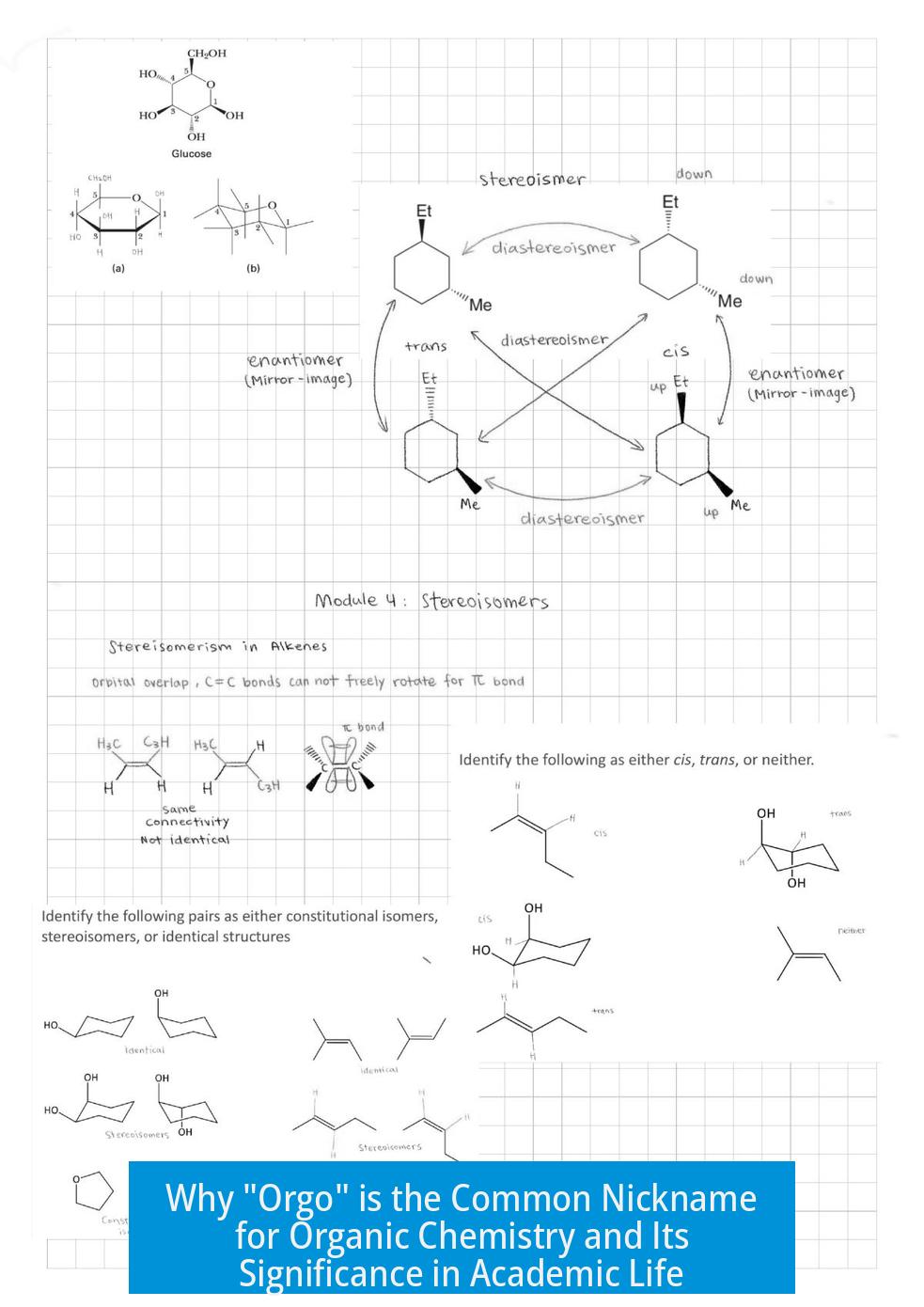

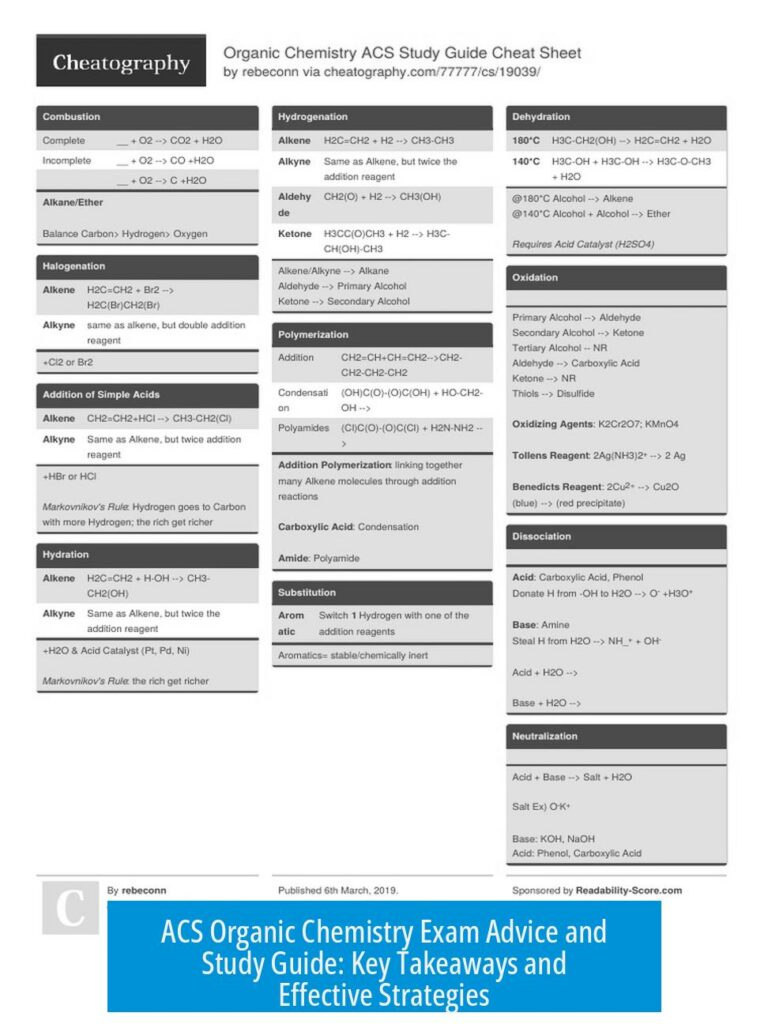
Leave a Comment